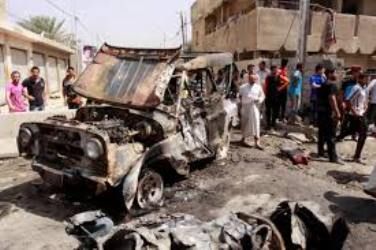
The full report reads as below:
A total of 241 Iraqi civilians were killed and another 277 injured in acts of terrorism, violence and armed conflict in Iraq in July 2017*, according to casualty figures recorded by the United Nations Assistance Mission for Iraq (UNAMI).
The number of civilians killed in July (not including police) was 239, while the number of injured (not including police) was 273.
Of those figures, Ninewa was the worst affected Governorate, with 233 civilian casualties (121 killed, 112 injured). Baghdad Governorate followed with 38 killed and 85 injured, and Anbar had 33 killed and 49 injured.
According to information obtained by UNAMI from the Health Directorate in Anbar, the Governorate suffered a total of 82 civilian casualties (33 killed and 49 injured). Figures are updated until 31 July, inclusive.
The United Nations Special Representative of the Secretary-General (SRSG) for Iraq, Mr. Ján Kubiš, condemned the terrorist Daesh’s actions which caused enormous suffering to civilians by using them as human shields up to the final moments before the group was crushed in Mosul and victory declared by the Government of Iraq on 10 July.
Mr. Kubiš renewed the call for protection of civilians in conflict as Iraqi forces prepare their campaign to liberate the remaining parts of the country from the scourge of Daesh.
“As we commend the Iraqi forces’ humanitarian concept of operations that has put civilian protection and assistance to internally displaced people (IDPs) at the center of the battle plan for Mosul, it is imperative that the protection of civilians continues to be the top priority in the conduct of military operations going forward.”
*CAVEATS: In general, UNAMI has been hindered in effectively verifying casualties in conflict areas. Figures for casualties from Anbar Governorate are provided by the Health Directorate and are noted in the July casualty report. Casualty figures obtained from the Anbar Health Directorate might not fully reflect the real number of casualties in those areas due to the increased volatility of the situation on the ground and the disruption of services. In some cases, UNAMI could only partially verify certain incidents. UNAMI has also received, without being able to verify, reports of large numbers of casualties along with unknown numbers of persons who have died from secondary effects of violence after having fled their homes due to exposure to the elements, lack of water, food, medicines and health care. Since the start of the military operations to retake Mosul and other areas in Ninewa, UNAMI has received several reports of incidents involving civilian casualties, which at times it has been unable to verify. For these reasons, the figures reported have to be considered as the absolute minimum.
9417**1771
 solhkhabar | Peace International News Agency Peace International News Agency , Peace News , International Agency News of Peace
solhkhabar | Peace International News Agency Peace International News Agency , Peace News , International Agency News of Peace